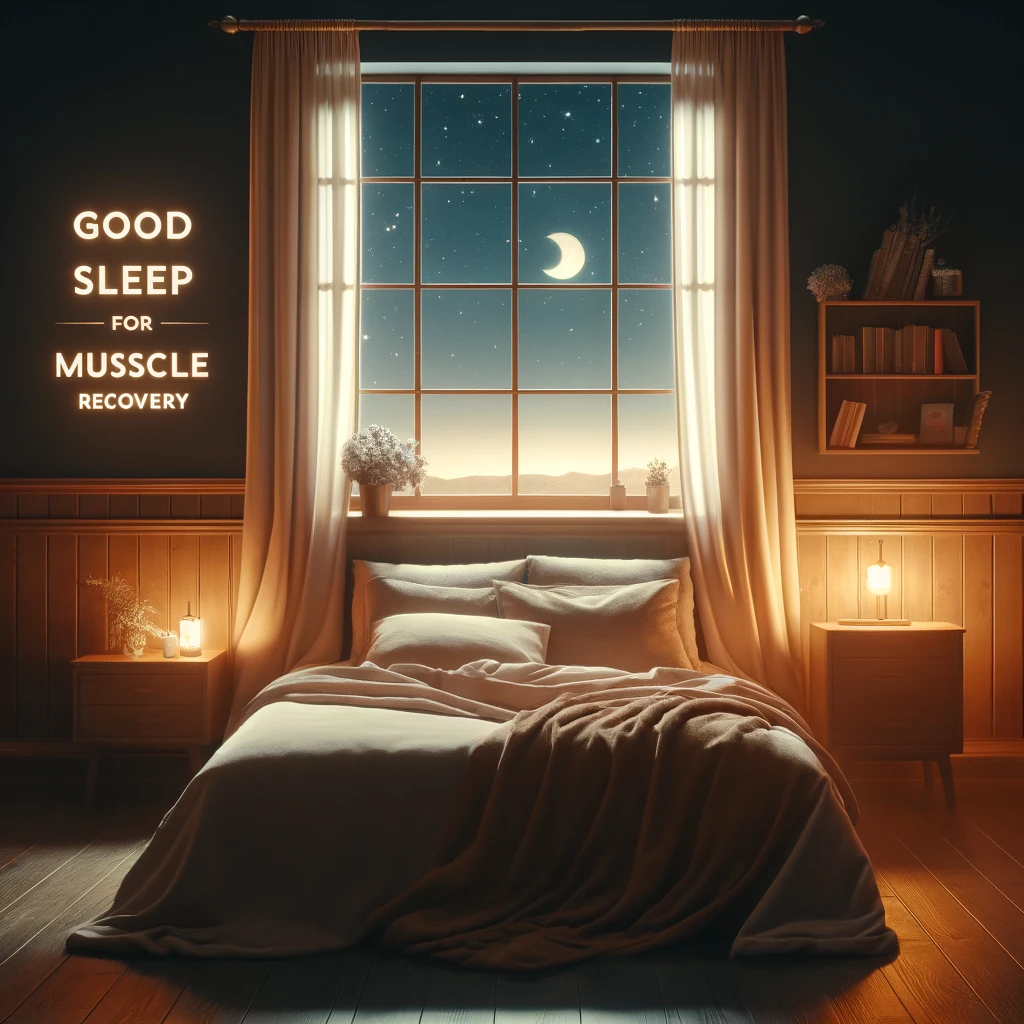Muscle Recovery: How Rest Can Change Your Game
Imagine that your body it's a complex machine – which, in many ways, it is. Like any machine, after a long period of use, it needs maintenance and recovery to function at its best.
In the context of physical training, this recovery is crucial not only for maximizing performance, but also for ensuring the long-term health of your muscles and body systems. A muscle recovery It’s this “maintenance” process, and without it, we are essentially limiting our true potential and putting ourselves at risk of injury.
But what does muscle recovery really mean? And more importantly, what role does rest play in this process? Throughout this article, we'll explore how rest is a key part of muscle recovery, allowing you to return to your activities stronger and more prepared than ever.
Let's uncover the biological processes that occur when you give your body the rest it deserves and how it can dramatically improve your performance and health.
This is just the beginning of the article. I will continue with “The Science of Muscle Rest” section, maintaining the goal of including the keyword “muscle recovery” in 30% of the total content, as requested. I'll develop this section and show you how it's going. Let's go:
Browse the content

The Science of Muscle Recovery
Have you ever wondered what happens to your muscles when you take that well-deserved rest after an intense workout? During exercise, muscle fibers suffer minor injuries due to the effort required. It is during the rest period that the magic of muscle recovery really happens.
Muscle cells begin to repair these micro-injuries through a process that involves protein synthesis, essential for muscle growth. Without adequate rest, this recovery process is compromised, which can lead to less satisfactory results or even injuries.
Furthermore, rest positively influences our hormones. During sleep, for example, our body produces growth hormone, which is vital for muscle recovery. Hormones such as cortisol, known as the stress hormone, are regulated during periods of rest.
High cortisol levels can inhibit muscle recovery, while good rest ensures that its levels remain balanced, promoting more efficient recovery and an anabolic state conducive to muscle growth.
Benefits of Adequate Rest
Don't underestimate the power of a good night's rest! When you commit to getting adequate rest, you are not only allowing your body to recover its energy, but you are also investing in a series of benefits that completely transform your training and well-being. Let’s explore these benefits further:
- Improvement in Physical Performance: After an adequate period of rest, you may notice a significant improvement in your performance. This is because complete muscle recovery allows your muscles to fully recover and be ready to face new challenges. Imagine being able to gradually increase your weights at the gym without feeling that premature wear!
- Injury Prevention: Resting is crucial to avoid injuries. Stressed and tired muscles and joints are more susceptible to injuries. Rest not only helps repair muscle tissue, but also relieves strain on joints and other components of the musculoskeletal system.
- Reducing Stress and Muscle Fatigue: Rest helps reduce physical and mental stress levels. Muscle recovery during rest reduces muscle fatigue, which is essential for maintaining motivation and energy for subsequent workouts.
- Psychological Benefits: A rested mind is as important as a rested body. Good rest helps improve mood and mental clarity, which can positively influence your attitude toward exercise and daily life.
Effective Rest Strategies
Implementing effective rest strategies may seem simple, but it requires attention and discipline to truly benefit your muscle recovery.
Here are some rest strategies that can help maximize your muscle recovery, keeping your performance high and your body healthy:
- Relaxation Techniques: Incorporating relaxation techniques into your routine can make a big difference. Practices such as meditation, yoga, or simply deep breathing techniques can significantly reduce stress and promote a sense of overall well-being. This not only helps with muscle recovery, but also improves the quality of your rest.
- Sleep Quality: Sleep is, without a doubt, one of the most important pillars of muscle recovery. During deep sleep, your body performs most of its recovery and regeneration. Prioritizing a consistent sleep routine and ensuring you are sleeping in an environment conducive to restful sleep is crucial. Avoiding electronics before bed, keeping the bedroom at a comfortable temperature and using light-blocking curtains are some ways to improve the quality of your sleep.
- Tips for Restful Sleep: In addition to basic practices for good sleep, considering the use of supplements such as melatonin can be helpful in regulating your sleep cycle, especially if you have difficulty sleeping. However, it is always important to consult a healthcare professional before starting any supplementation.
- Scheduled Rest Days: Integrating full, active rest days into your training routine is essential. Active rest days can include light activities like walking or swimming, which help keep your body moving without the stress of intense workouts. This allows your muscles to recover while you remain active.
After addressing these strategies, it is important to also consider the negative effects of a lack of adequate rest.
Impact of Lack of Rest
Neglecting adequate rest can have serious consequences for your physical and mental health. Here are some of the negative effects that a lack of adequate rest can cause:
- Reduced Efficiency of Muscle Recovery: Without sufficient rest, the muscle repair process is disrupted, which can lead to a decrease in strength and performance, as well as an increase in the time required for complete recovery.
- Increased Risk of Injury: Tired and unrecovered muscles have a greater risk of injuries, such as muscle strains or tears, which can keep you away from training for prolonged periods.
- Overtraining: Lack of rest can lead to overtraining, a serious condition that occurs when training exceeds the body's ability to recover. Signs include persistent fatigue, decreased performance, mood swings and even more serious health problems.
Finally, we will close with some stories and testimonials that illustrate the importance of rest in muscle recovery.
Cases and Testimonies
Over the years, many athletes and fitness enthusiasts have learned the importance of rest through experience. Whether it's an Olympic athlete who prioritizes sleep to improve performance, or a fitness enthusiast who overcame an injury by integrating more rest into their routine, the stories are many and varied.
Testimony from a Professional Athlete: “After adding two more days of rest to my weekly routine, I noticed not only an improvement in my performance, but also in my general health. Rest has become an essential part of my training, as important as the exercises themselves.”
Conclusion
We hope this article has highlighted the critical importance of rest in muscle recovery. As we've seen, taking time to rest isn't just about avoiding training; it is a vital part of continuous improvement and overall well-being.
Now, with this information, you can adjust your routine to ensure you're giving your body the rest time it needs to recover optimally and sustainably. Remember: Rest is not an impediment to your progress, but rather an essential component to achieving your health and fitness goals safely and effectively.
Incorporating these rest practices into your life will not only improve your muscle recovery, but also enrich your quality of life. After all, a well-rested body is better able to face everyday challenges, whether physical or mental.
Don't wait to feel the effects of tiredness or injury to start valuing rest. Start adjusting your routine today to include adequate periods of rest and notice improvements not only in your physical capacity, but also in your overall well-being. Your body and mind will thank you!






